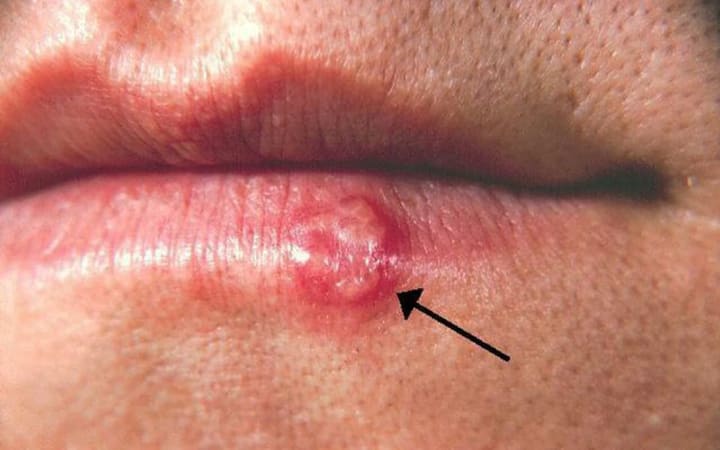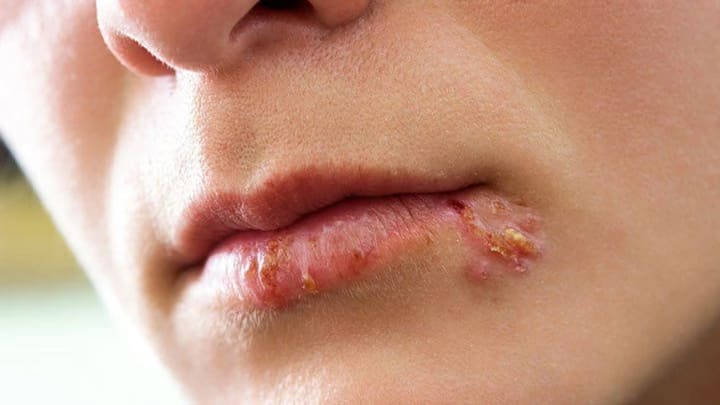Can you get herpes from contracting the Herpes virus while swimming?
Herpes is a group of viruses that can lead to mouth or genital sores. The virus is extremely contagious - but can you catch it while swimming, or can chlorine kill herpes?

According to the World Health Organization - WHO, an estimated 3.7 billion people under the age of 50 (67%) globally are infected with herpes simplex virus type 1 (HSV-1), the main cause of oral herpes. An estimated 491 million people aged 15–49 (13%) worldwide are infected with herpes simplex virus type 2 (HSV-2), the main cause of genital herpes.
The herpes simplex virus (HSV), known as herpes, is a common infection that can cause painful blisters or sores. The disease is spread mainly through skin-to-skin contact. Herpes caused by this virus can be treated but cannot be cured.
There are two types of Herpes virus: Type 1 is HSV-1 which usually causes oral herpes, which can cause cold sores, blisters and tongue herpes. Type 2 is HSV-2 which commonly causes genital herpes, which can cause painful blisters on the genitals or anus.
In the summer, the need for swimming to cool off increases. This raises concerns about whether the herpes virus can spread through water? Should people with herpes sores go swimming in the pool?

1. Infection route of herpes virus
This virus can be transmitted from seemingly normal oral or skin surfaces; however, the greatest risk of transmission is when an active ulcer is present. People who have been infected with HSV-1 are not at risk of reinfection, but they are still at risk of being infected with HSV-2.
HSV-2 is primarily transmitted through sexual contact with genital or anal surfaces, skin, sores, or fluids of a person infected with the virus. HSV-2 can be transmitted even when the skin appears normal and is often transmitted when there are no symptoms.
In rare cases, herpes (HSV-1 and HSV-2) can be transmitted from mother to baby during birth, causing herpes in the newborn.

2. Can you get infected with the herpes virus when swimming?
That's because chemical disinfectants like chlorine often kill herpes, according to the University of Nebraska-Lincoln.
However, you can still get the virus in a swimming pool if you have physical contact with someone who has herpes or if you share items such as towels or other personal items that come into contact with other people. skin.
3. Can you go swimming during a herpes outbreak?
- Wear a swimsuit : When bathing in the pool, you should cover your blisters. A swimsuit will protect against accidental contact by others with the blisters, and can also reduce pain and irritation caused by chlorine, as the swimsuit is a barrier between the skin and the water.
Use sunscreen : Sunlight can trigger a herpes outbreak. You should wear sunscreen, including lip balm with sun protection factor (SPF). This can help you avoid herpes outbreaks.

4. How to prevent and treat herpes blisters
Herpes cannot be cured. But fortunately, the disease is preventable and there are treatments to help reduce outbreaks.
- Practice safe sex, such as using condoms
- Boost your immunity with a healthy lifestyle to avoid herpes outbreaks
Treatments for herpes sores (for both oral and genital sores) include:
- Antiviral medications or prescription ointments (These medications work best when started early, so see your doctor as soon as you have any symptoms. You may experience tingling or pain before seeing the bump.)
- Apply cool or warm compresses to irritated ulcers
- Use over-the-counter pain relievers such as ibuprofen to relieve pain
To ensure safety, people should choose a clean swimming pool, use protective gear such as eyeglasses, swimming clothes and should bathe and keep their body, ears, eyes, nose,... clean.
About the Creator
Ken aquariums
Telling stories my heart needs to tell <3 life is a journey, not a competition
If you like what you read, feel free to leave a tip,I would love some feedback
https://www.pinterest.com/Ken_Aquariums
https://s.shopee.vn/1B0pL9ZA9m
Enjoyed the story? Support the Creator.
Subscribe for free to receive all their stories in your feed. You could also pledge your support or give them a one-off tip, letting them know you appreciate their work.






Comments
There are no comments for this story
Be the first to respond and start the conversation.